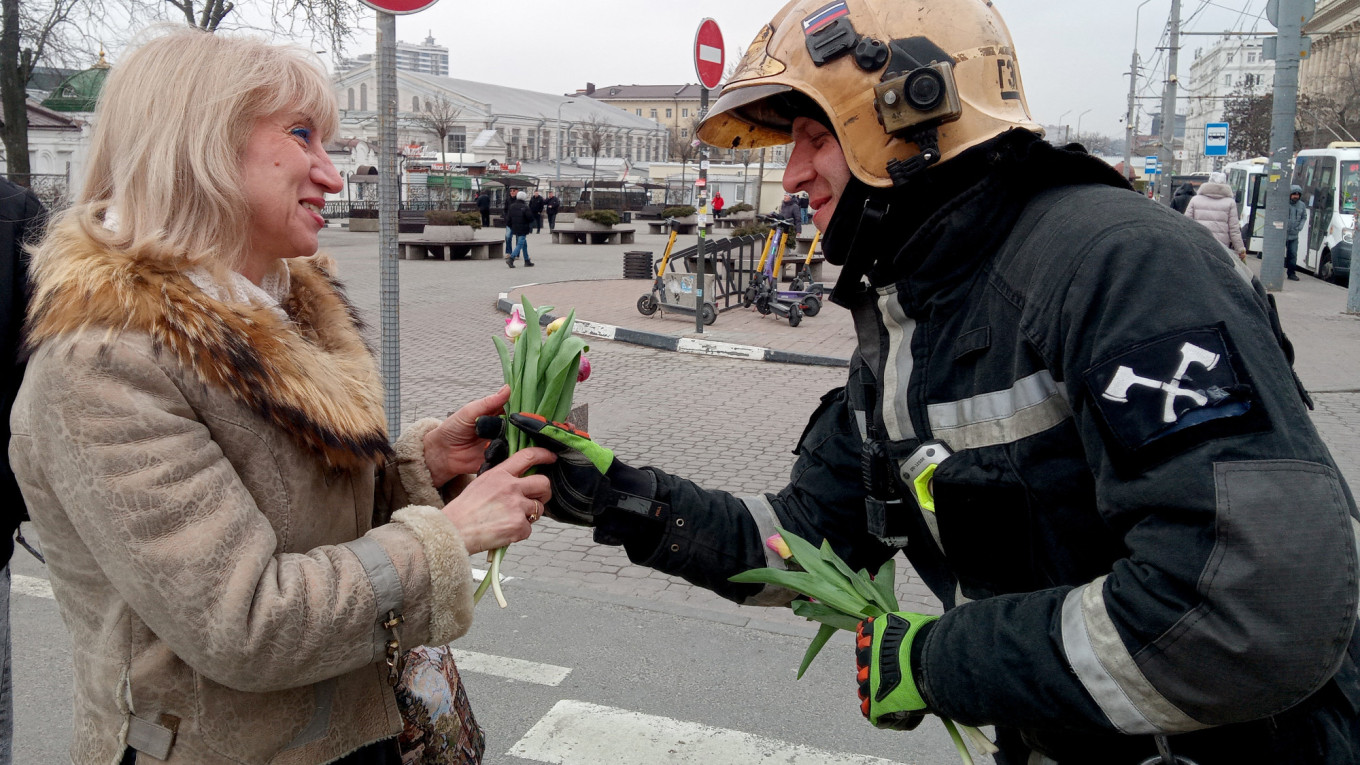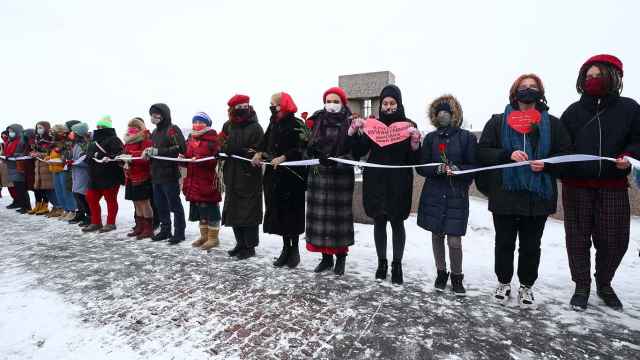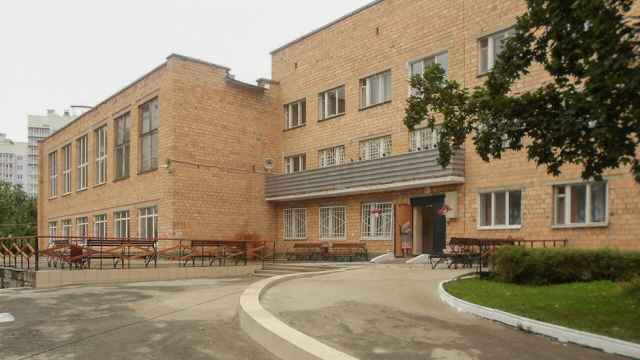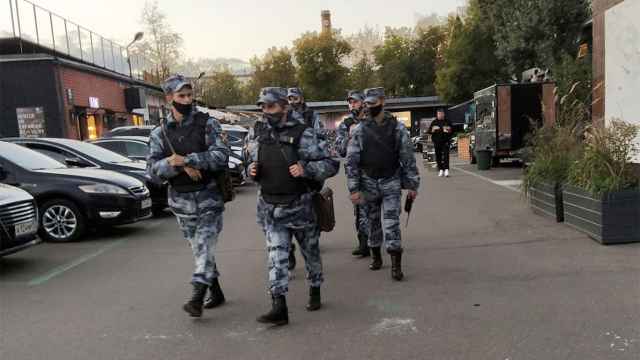Women’s Day has been a national holiday in Russia since 1966, but was celebrated for decades before that. It is a festival where Russians pay tribute to all the women in their lives, from mothers and sisters to teachers and colleagues.
While the United Nations uses International Women’s Day to celebrate gender equality and highlight women’s rights issues, Russian officials and public figures struck a different tone.
The Best Gift For A Woman? Pregnancy
Vitaly Milonov, deputy chairman of the State Duma’s Family Committee, was the architect of Russia’s infamous law against spreading “gay propaganda.” He also has very strong views on what makes women happy.
“I truly believe that the best gift for a woman is a new pregnancy,” he told the Govorit Moskva radio station.
The lawmaker also warned couples against drinking too much during their romantic evening together to avoid a "drunken conception". Men should instead “be a man” or, failing that, use flowers to seduce their other half.
President Vladimir Putin echoed Milonov’s views in his Women’s Day Address. “The most important thing for every woman — no matter what career she chooses and what she is able to achieve in it — is family … [and] taking tireless care of children,” he said.
Putin has already declared 2024 “the year of the family,” and promised to implement new measures to reverse Russia’s low birth rate.
Men Have It Worse Than Women
RT chief editor Margarita Simonyan decided to use the day set aside for celebrating women to highlight the expectations placed on men instead.
“When you are a man, everyone expects you to be responsible,” she said, listing how men are expected to take leadership roles at home and in the workplace, as well as being good in bed and willing to defend their homeland.
“When you’re a woman,” she concluded, “nobody expects that from you. You just do it all silently, and then you go and make borscht.”
Make War, Not Love
Bouquets of flowers are a classic Women’s Day gift, with tulips, roses and acacia being particularly popular choices.
But Alexander Zhukov, a deputy in the Voronezh City Duma, has other ideas, urging residents to donate to the war instead of buying presents for the women in their lives. “We’ll give flowers to women after our victory,” he said.
Yogurt For Widows
Wives and mothers of mobilized soldiers have emerged as one of the few groups to protest against the war — or at least the poor conditions Russian soldiers face — without incurring a harsh crackdown from the authorities.
Local officials used the day to publicly pay tribute to these relatives. In Lipetsk and Tula, widows were paid 10,000 rubles ($110). In the Moscow region town of Balashikha, women were offered jobs as dishwashers and paramedics at the Rubin Aviation Corporation, where the monthly salary of 42-47,000 rubles ($463-518) is lower than the regional average of 79,000 rubles ($871).
Other tributes were more bizarre. Vyacheslav Frank, mayor of Barnaul in the Altai region, presented a mother of three children with a yogurt maker after her husband was killed.
Thank You, Putin, For Opening Up All Opportunities to Women
Federation Council Chair Valentina Matviyenko used her speech at the All-Russian Women’s Forum to thank Putin for opening up “all opportunities” in Russia to women.
However, not all opportunities are open to women as Russian law forbids them from working in dozens of careers for health reasons.
The feminist media outlet Kosa quickly pointed out that reality for women in Putin’s Russia is often far less rosy than the picture Matviyenko painted. In the most egregious example, Russia 2017 decriminalized cases of domestic violence that result in “minor harm” like small bruises and superficial wounds.
A Message from The Moscow Times:
Dear readers,
We are facing unprecedented challenges. Russia's Prosecutor General's Office has designated The Moscow Times as an "undesirable" organization, criminalizing our work and putting our staff at risk of prosecution. This follows our earlier unjust labeling as a "foreign agent."
These actions are direct attempts to silence independent journalism in Russia. The authorities claim our work "discredits the decisions of the Russian leadership." We see things differently: we strive to provide accurate, unbiased reporting on Russia.
We, the journalists of The Moscow Times, refuse to be silenced. But to continue our work, we need your help.
Your support, no matter how small, makes a world of difference. If you can, please support us monthly starting from just $2. It's quick to set up, and every contribution makes a significant impact.
By supporting The Moscow Times, you're defending open, independent journalism in the face of repression. Thank you for standing with us.
Remind me later.






